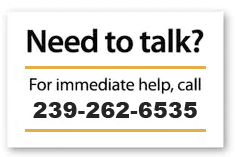How to Stop Drinking: 14 Tips for Success

Distance yourself from people who don’t support your efforts to stop drinking or respect the limits you’ve set. This may mean giving up certain friends and social connections. If your goal is to reduce your drinking, decide which days you will drink alcohol and how many drinks you will allow yourself per day. Try to commit to at least two days each week when you won’t drink at all.

How helpful would you rate this article?
- This is just one part of the psychotherapeutic approaches used in addiction treatment, includingcognitive behavioral therapy(CBT) anddialectic behavioral therapy(DBT).
- Learning how to overcome an addiction is important for anyone experiencing a substance use disorder (SUD), alcohol use disorder (AUD), or behavioral addiction.
- Even simple things like talking to a friend, watching a television show, reading a book, or going for a walk can provide a sufficient distraction while you wait for a craving to pass.
- Each drinking relapse is an opportunity to learn and recommit to sobriety, so you’ll be less likely to relapse in the future.
Ultimately, receiving treatment can improve your chances of success. Currently, there are three medications approved for AUD in the United States, and they are an effective and important aid in the treatment of people with this condition. Ultimately, there is no one-size-fits-all solution, and what may work for one person may not be a good fit for someone else. Simply understanding the different options can be an important first step.

Ready to Break Free From Addiction?
Things that work for some people don’t necessarily work for others. You may not need to completely reinvent your life to quit drinking, but making a few changes in your surroundings to help avoid alcohol triggers can make a big difference. All the same, “a quick drink” often turns into three or four drinks.

Do not sell my personal information Privacy Policy and Terms of Use
- In some cases, you may need medical supervision during the detox process.
- Self-help books can boost your confidence and motivate you to stay sober.
- Stigma in addiction recovery refers to the negative attitudes and beliefs that society holds toward individuals struggling with or recovering from addiction.
- This cycle perpetuates the addiction and, in turn, reinforces the stigma.
- For people who experience hallucinations as part of alcohol withdrawal, these may begin in the 12- to 24-hour time frame.
- By acknowledging that a change is needed, it means that you recognize that there is a problem and have a desire to address it.
Moderating your drinking at your own pace might help take away the pressure that often comes with strict abstinence-only goals. While it’s not necessarily for everyone, finding a balance that works for you can make cutting back feel a lot more manageable and enjoyable. The experience of withdrawing from alcohol can be uncomfortable and difficult. Some people may relapse, or drink alcohol again, to relieve the symptoms.
Tell family members and friends you want to get healthier.
We publish material that is researched, cited, edited and reviewed by licensed medical professionals. The information we provide is not intended to be a substitute for professional medical advice, diagnosis or treatment. It should not be used in place of the advice of your physician or other qualified healthcare providers.
About Medical News Today
- It’s often easier to turn down a drink when you don’t have to do it alone.
- You may also find it necessary to change your routine so that you have less contact with people or settings that trigger cravings.
- Replacing alcohol with healthy activities that do not encourage drinking can be a healthy alternative.
- If you are still experiencing withdrawal symptoms after three days, talk to your healthcare provider.
- There are options for medications to help alleviate withdrawal symptoms.
- People at high risk of complications should enter a short-term in-patient detox program.
- It should not be used in place of the advice of your physician or other qualified healthcare provider.
Find a supportive friend or family member to be with you while you withdraw and support your new non-drinking lifestyle. People with alcohol use disorder should be monitored by a medical professional when withdrawing from alcohol. Moderate to heavy drinkers can also benefit from medical supervision in the acute withdrawal stage. These symptoms may start a few hours or a few days after your last drink of alcohol.
Mild Symptoms
Counseling can be simple or intensive depending on the severity of your drinking problems. The app store on your cellphone has several sobriety apps that can inspire you to quit drinking and stay sober. Some appshelp you keep track of alcohol intake or sobriety dates. They may help youquit drinking, but most of these apps haven’t been medically reviewed. Similarly, some alcoholics may be able to stop drinking with the help of Alcoholics Anonymous. Once you know how much of a role alcohol plays in your life, you can figure out how to https://ecosoberhouse.com/article/5-tips-of-how-to-maintain-recovery-motivation/ quit drinking.

Sometimes, symptoms may be severe enough to require medical treatment at a hospital or rehabilitation facility. But some people choose to manage alcohol withdrawal themselves. Here are suggestions for how to get through alcohol withdrawal at home. Focusing on finding rewarding, healthy strategies that support your long-term recovery. Fortunately, most of the acute symptoms of withdrawal pass within a week or two of how to overcome alcoholism quitting. However, some people who quit an addiction find that certain withdrawal symptoms seem to go on and on.

Leave a Reply